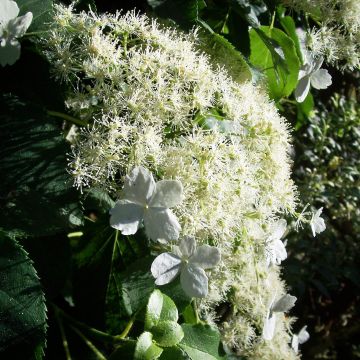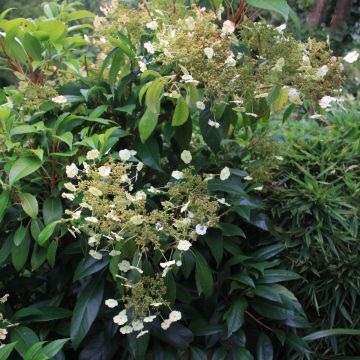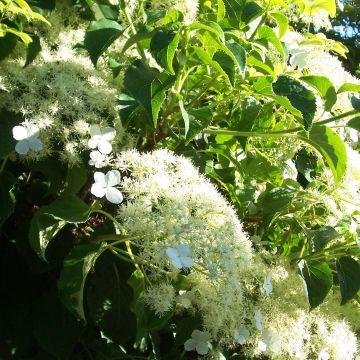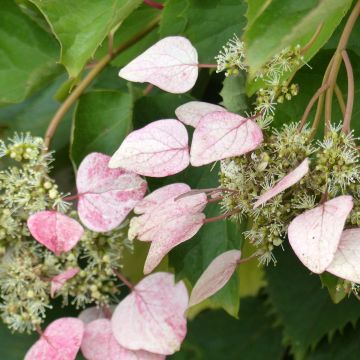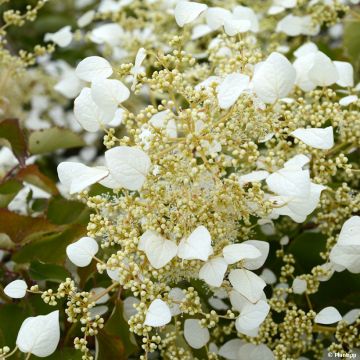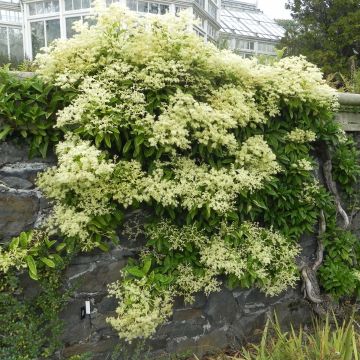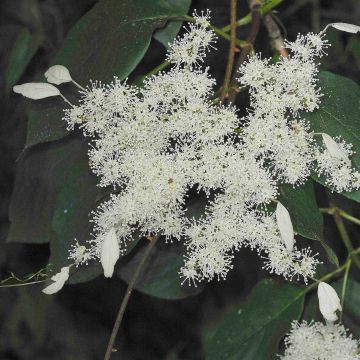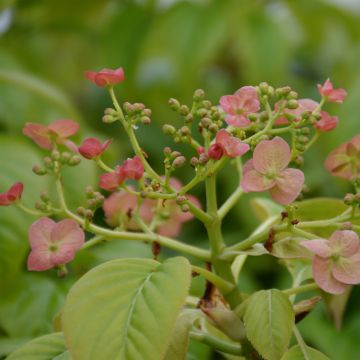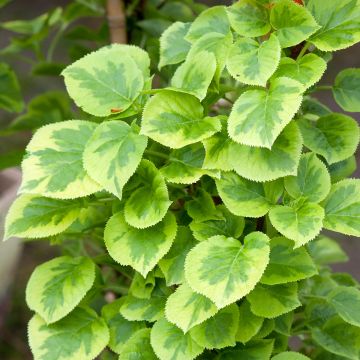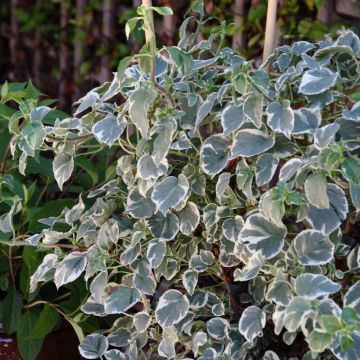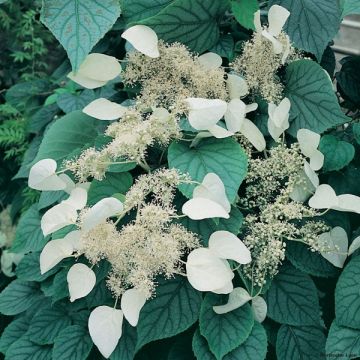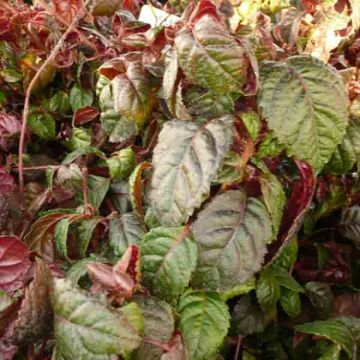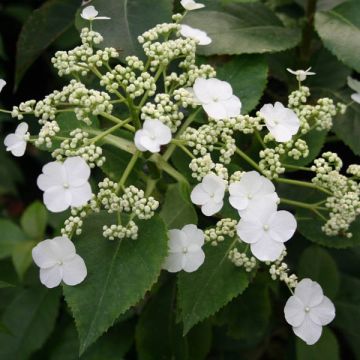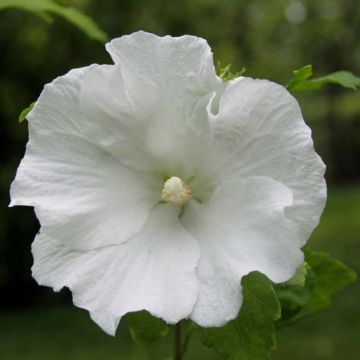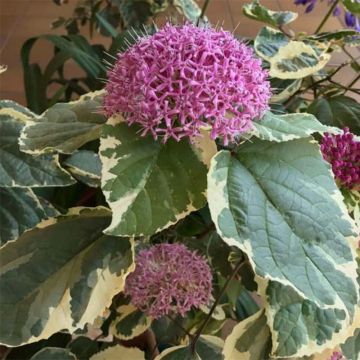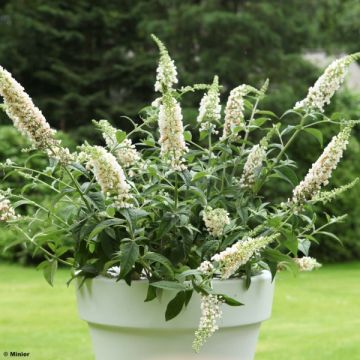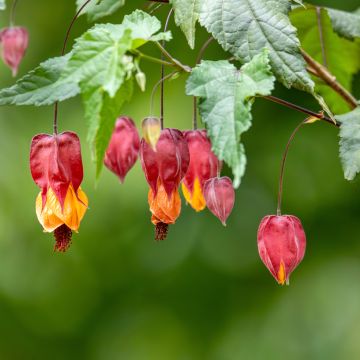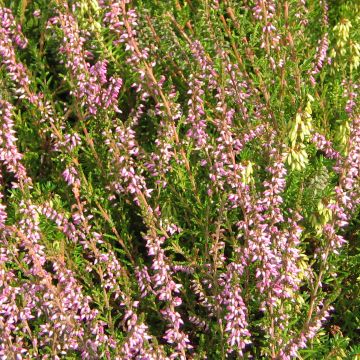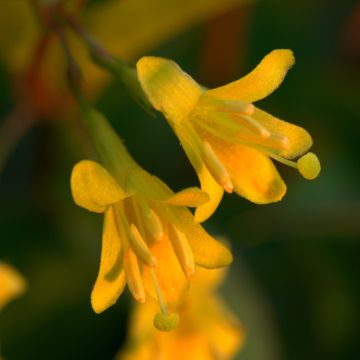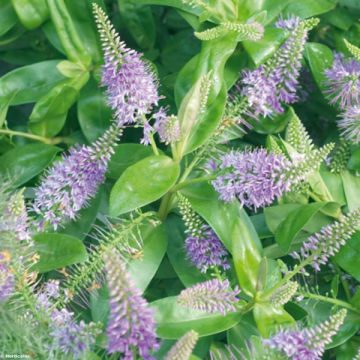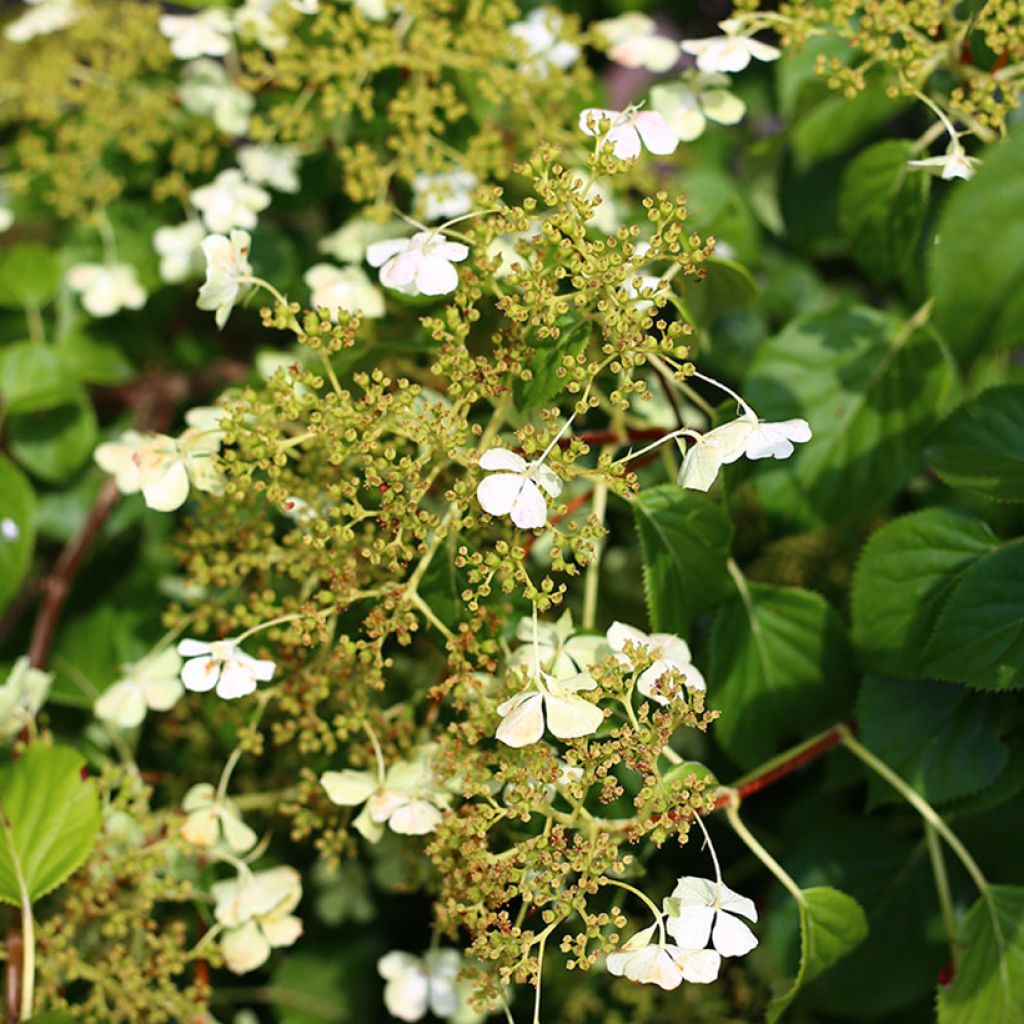

Hortensia grimpant - Hydrangea petiolaris Cordifolia
Hydrangea petiolaris Cordifolia- Climbing Hydrangea
Hydrangea anomala petiolaris var. cordifolia
Climbing Hydrangea
Special offer!
Receive a €20 voucher for any order over €90 (excluding delivery costs, credit notes, and plastic-free options)!
1- Add your favorite plants to your cart.
2- Once you have reached €90, confirm your order (you can even choose the delivery date!).
3- As soon as your order is shipped, you will receive an email containing your voucher code, valid for 3 months (90 days).
Your voucher is unique and can only be used once, for any order with a minimum value of €20, excluding delivery costs.
Can be combined with other current offers, non-divisible and non-refundable.
Why not try an alternative variety in stock?
View all →This plant carries a 6 months recovery warranty
More information
We guarantee the quality of our plants for a full growing cycle, and will replace at our expense any plant that fails to recover under normal climatic and planting conditions.
Would this plant suit my garden?
Set up your Plantfit profile →
Description
Hydrangea anomala subsp. petiolaris var. cordifolia is a rare form of climbing hydrangea which prefers to creep along the soil, although some of its branches may rise a little if they find a support at their disposal. It is also characterised by cordate leaves which are smaller than those of the classic Hydrangea petiolaris. It's a curious bush with deciduous foliage that uses it climbing roots to cling to stones and weave among other plants. Its flowering in summer is full of charm, in umbels of white lace, which remain decorative as they dry on the plant. An elegant and original ground cover to plant under trees and on the edge of woodlands, sheltered from the burning sun.
Hydrangea cordifolia belongs to the Hydrangeaceae family. It's a slow growing plant, whose vegetation can cover about 2.5m (8ft) on the soil in 10 years. An adult plant will not exceed 3m (10ft), although some branches can climb up to 80cm (32in) or 1m (3ft) in height at most. This creeping liana produces well-ramified ligneous stems, which present an interesting architecture. With age, they crack, and their bark peels off in shreds, giving the plant an attractive look even in winter. The branches cling thanks to climbing roots. Without support, the plant will form a very low, wide and dense bush. Its growth is a bit slow at the juvenile stage. The small leaves, with crenelated and dentate edges, are deciduous: they form in spring and fall in autumn. This foliage takes on a pretty golden hue at the end of the season. This hydrangea generally flowers in July, even in the shade. Its nectariferous flowers, in umbels of 10 to 12cm (4 to 5in) in diameter, are reminiscent of parasols. They are slightly domed, cream white in colour, and produce a light but sweet scent. They transform the plant into a pastoral and vaporous mass. These inflorescences do not fade, but dry slowly on the plant, adopting subtle green nuances before browning.
Hydrangea cordifolia can be used as a ground cover, to vegetate a large shaded rockery, or to dress the base of an old tree. It's a very useful plant for retaining sloping soils. It goes well with shrubby fuchsias (Fuchsia magellanica) for example, or low-maintenance plants such as Aegopodium podagraria 'Variegata', Alchemilla mollis, hostas, or Tiarella cordifolia. You can also let it run among the more classic types of hydrangea. In all cases, plant in a gently sunny to semi-shady exposure, away from burning sun, in humus-rich, moist soil.
Report an error about the product description
Plant habit
Flowering
Foliage
Botanical data
Hydrangea
anomala petiolaris
var. cordifolia
Hydrangeaceae
Climbing Hydrangea
Cultivar or hybrid
Other Climbing Hydrangea
View all →Planting and care
Plant in a north or east exposure, in deeply worked, humus-rich soil, without excess limestone. If you plant it in an east exposure, consider watering regularly during the first few years, as the young plant will receive little water in this position. A good base fertiliser (horn or dehydrated blood) will promote the establishment of your plant and nourish it without risk of burning. If your soil tends to be dry, incorporate some compost and turf into the soil and prepare a surface watering basin. You can mulch the base in summer to keep the roots cool, and water regularly if the summer is very dry. After a few years, this plant should be able to manage on its own. If pruning is required to limit its growth, it should be carried out when the leaves fall. Remove the faded inflorescences in autumn. Eliminate poorly placed branches, which are heading in the wrong direction.
Planting period
Intended location
Care
This item has not been reviewed yet - be the first to leave a review about it.
Similar products
Haven't found what you were looking for?
Hardiness is the lowest winter temperature a plant can endure without suffering serious damage or even dying. However, hardiness is affected by location (a sheltered area, such as a patio), protection (winter cover) and soil type (hardiness is improved by well-drained soil).

Photo Sharing Terms & Conditions
In order to encourage gardeners to interact and share their experiences, Promesse de fleurs offers various media enabling content to be uploaded onto its Site - in particular via the ‘Photo sharing’ module.
The User agrees to refrain from:
- Posting any content that is illegal, prejudicial, insulting, racist, inciteful to hatred, revisionist, contrary to public decency, that infringes on privacy or on the privacy rights of third parties, in particular the publicity rights of persons and goods, intellectual property rights, or the right to privacy.
- Submitting content on behalf of a third party;
- Impersonate the identity of a third party and/or publish any personal information about a third party;
In general, the User undertakes to refrain from any unethical behaviour.
All Content (in particular text, comments, files, images, photos, videos, creative works, etc.), which may be subject to property or intellectual property rights, image or other private rights, shall remain the property of the User, subject to the limited rights granted by the terms of the licence granted by Promesse de fleurs as stated below. Users are at liberty to publish or not to publish such Content on the Site, notably via the ‘Photo Sharing’ facility, and accept that this Content shall be made public and freely accessible, notably on the Internet.
Users further acknowledge, undertake to have ,and guarantee that they hold all necessary rights and permissions to publish such material on the Site, in particular with regard to the legislation in force pertaining to any privacy, property, intellectual property, image, or contractual rights, or rights of any other nature. By publishing such Content on the Site, Users acknowledge accepting full liability as publishers of the Content within the meaning of the law, and grant Promesse de fleurs, free of charge, an inclusive, worldwide licence for the said Content for the entire duration of its publication, including all reproduction, representation, up/downloading, displaying, performing, transmission, and storage rights.
Users also grant permission for their name to be linked to the Content and accept that this link may not always be made available.
By engaging in posting material, Users consent to their Content becoming automatically accessible on the Internet, in particular on other sites and/or blogs and/or web pages of the Promesse de fleurs site, including in particular social pages and the Promesse de fleurs catalogue.
Users may secure the removal of entrusted content free of charge by issuing a simple request via our contact form.
The flowering period indicated on our website applies to countries and regions located in USDA zone 8 (France, the United Kingdom, Ireland, the Netherlands, etc.)
It will vary according to where you live:
- In zones 9 to 10 (Italy, Spain, Greece, etc.), flowering will occur about 2 to 4 weeks earlier.
- In zones 6 to 7 (Germany, Poland, Slovenia, and lower mountainous regions), flowering will be delayed by 2 to 3 weeks.
- In zone 5 (Central Europe, Scandinavia), blooming will be delayed by 3 to 5 weeks.
In temperate climates, pruning of spring-flowering shrubs (forsythia, spireas, etc.) should be done just after flowering.
Pruning of summer-flowering shrubs (Indian Lilac, Perovskia, etc.) can be done in winter or spring.
In cold regions as well as with frost-sensitive plants, avoid pruning too early when severe frosts may still occur.
The planting period indicated on our website applies to countries and regions located in USDA zone 8 (France, United Kingdom, Ireland, Netherlands).
It will vary according to where you live:
- In Mediterranean zones (Marseille, Madrid, Milan, etc.), autumn and winter are the best planting periods.
- In continental zones (Strasbourg, Munich, Vienna, etc.), delay planting by 2 to 3 weeks in spring and bring it forward by 2 to 4 weeks in autumn.
- In mountainous regions (the Alps, Pyrenees, Carpathians, etc.), it is best to plant in late spring (May-June) or late summer (August-September).
The harvesting period indicated on our website applies to countries and regions in USDA zone 8 (France, England, Ireland, the Netherlands).
In colder areas (Scandinavia, Poland, Austria...) fruit and vegetable harvests are likely to be delayed by 3-4 weeks.
In warmer areas (Italy, Spain, Greece, etc.), harvesting will probably take place earlier, depending on weather conditions.
The sowing periods indicated on our website apply to countries and regions within USDA Zone 8 (France, UK, Ireland, Netherlands).
In colder areas (Scandinavia, Poland, Austria...), delay any outdoor sowing by 3-4 weeks, or sow under glass.
In warmer climes (Italy, Spain, Greece, etc.), bring outdoor sowing forward by a few weeks.






























